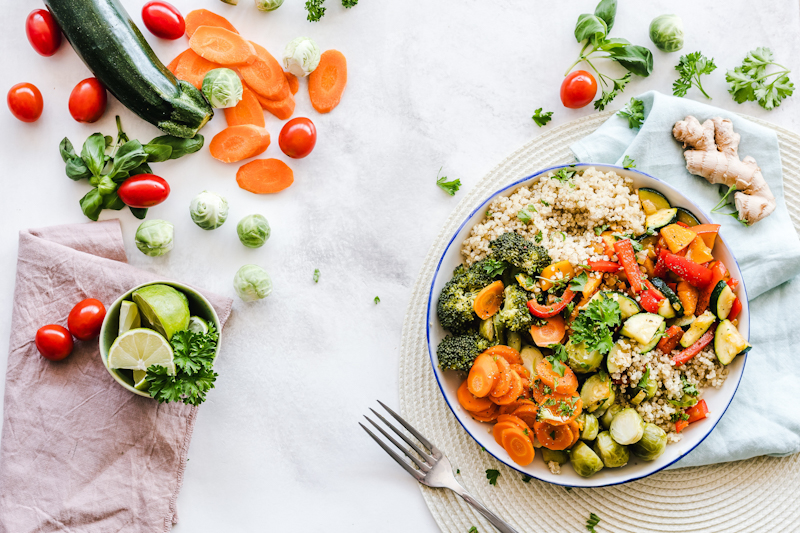More technically, this refers to the calorific value of a particular food. To further understand the concept of calorie density, consider the main macronutrient content in all essential foods.
Generally, calorie density can be measured per 100 grams of food, which seems challenging.
Therefore, a calorie calculator was developed to estimate the total amount of calories individuals require to maintain, lose, or gain weight.
What Is Calorie Density? “The evaluation of food content interconnected with weight management or food volume is known as the calorie density. It also refers to the energy density.”
Why Is Nutrient Density Important For Meal Planning?
Fat ranks the highest among nutrients in terms of caloric density. Expertise suggests that medical patients’ fat intake is crucial, and their limiting nutrient intake is energy.
- Food that is dense in nutrients provides minerals and vitamins that are important for health.
- They contribute to weight maintenance by being lower in calories and promoting satisfaction.
- Rich nutrient food also eliminates the risks of chronic diseases, including diabetes and heart disease.
- Throughout the day, the food, which is full of nutrients, improves creativity and promotes a pleasant mood.
- Due to the presence of fibre, it promotes gut health by improving digestion and lessening gastrointestinal problems.
How Do Calories Affect Weight Management?
Calories have a significant impact on weight continuity. It involves monitoring the burned calories to maintain weight.
Therefore, when trying to lose or gain body weight, you need a calorie calculator to determine how many calories you burn daily.
So, the calorie density for keeping a healthy body is considered prominent when counting calories. For the following reasons, calorie role is essential:
Energy Balance
The overall weight revolves around calorie consumption (Energy Exhaust) and gain calories (Energy Intake).
Caloric Deficit or Surplus
Typically, there are two possibilities for gain or calories to lose weight, including:
- Weight gain results from your intake of calories, which is more than your burning.
- Weight loss results from calorie consumption, which is more than the gain of calories.
Macronutrient Composition
The role of macronutrients also matters. Various macronutrients, including proteins, fats, and carbohydrates, have influenced metabolism, hunger, and body composition. A diet that contains some macronutrients supports weight management.
Metabolism:
The body’s metabolic rate is affected by age, gender, genetics, and activity level. This factor helps analyse the number of calories consumed when the body is at rest and how many while performing any physical task.
Nutrient Density
Select foods that are rich in nutrients over foods that are high in calories. Nutrient-deficit options can help with weight management. This way, you can achieve overall health and weight control without the extra calories.
Calories Density in Common Foods
Use the daily calorie intake calculator, which pays attention to the calorie density of your meal and helps achieve weight loss goals. Therefore, we have drawn a table in which certain foods are given to analyse how dense calories are.
| Food | Serving Size | Calories | kJ |
Fruit |
|||
| Apple | 1 (4 oz.) | 59 | 247 |
| Banana | 1 (6 oz.) | 151 | 632 |
| Grapes | 1 cup | 100 | 419 |
| Orange | 1 (4 oz.) | 53 | 222 |
| Pear | 1 (5 oz.) | 82 | 343 |
| Peach | 1 (6 oz.) | 67 | 281 |
| Pineapple | 1 cup | 82 | 343 |
| Strawberry | 1 cup | 53 | 222 |
| Watermelon | 1 cup | 50 | 209 |
Vegetables |
|||
| Asparagus | 1 cup | 27 | 113 |
| Broccoli | 1 cup | 45 | 188 |
| Carrots | 1 cup | 50 | 209 |
| Cucumber | 4 oz. | 17 | 71 |
| Eggplant | 1 cup | 35 | 147 |
| Lettuce | 1 cup | 5 | 21 |
| Tomato | 1 cup | 22 | 92 |
Proteins |
|||
| Beef, regular, cooked | 2 oz. | 142 | 595 |
| Chicken, cooked | 2 oz. | 136 | 569 |
| Tofu | 4 oz. | 86 | 360 |
| Egg | 1 large | 78 | 327 |
| Fish, Catfish, cooked | 2 oz. | 136 | 569 |
| Pork, cooked | 2 oz. | 137 | 574 |
| Shrimp, cooked | 2 oz. | 56 | 234 |
Common Meals/Snacks |
|||
| Bread, white | 1 slice (1 oz.) | 75 | 314 |
| Butter | 1 tablespoon | 102 | 427 |
| Caesar salad | 3 cups | 481 | 2014 |
| Cheeseburger | 1 sandwich | 285 | 1193 |
| Hamburger | 1 sandwich | 250 | 1047 |
| Dark Chocolate | 1 oz. | 155 | 649 |
| Corn | 1 cup | 132 | 553 |
| Pizza | 1 slice (14″) | 285 | 1193 |
| Potato | 6 oz. | 130 | 544 |
| Rice | 1 cup cooked | 206 | 862 |
| Sandwich | 1 (6″ Subway Turkey Sandwich) | 200 | 837 |
Beverages/Dairy |
|||
| Beer | 1 can | 154 | 645 |
| Coca-Cola Classic | 1 can | 150 | 628 |
| Diet Coke | 1 can | 0 | 0 |
| Milk (1%) | 1 cup | 102 | 427 |
| Milk (2%) | 1 cup | 122 | 511 |
| Milk (Whole) | 1 cup | 146 | 611 |
| Orange Juice | 1 cup | 111 | 465 |
| Apple cider | 1 cup | 117 | 490 |
| Yoghurt (low-fat) | 1 cup | 154 | 645 |
| Yoghurt (non-fat) | 1 cup | 110 | 461 |




